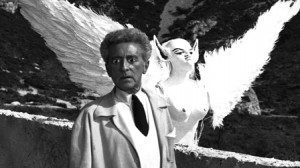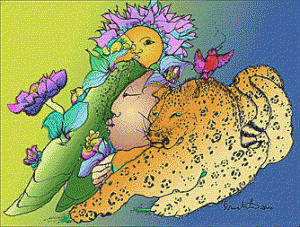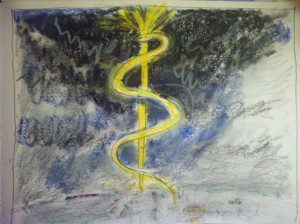
“I realized that my dream life was as full of memories as my real life, that it was a real life, denser, richer in episodes and in details of all kinds, more precise, in fact, and that it was difficult for me to locate my memories in one world or the other, and that they were superimposed, combined, and creating a double life for me, twice as huge and twice as long as my own.”
The speaker is Jean Cocteau (1889-1963) the wildly creative French artist, dramatist, filmmaker, novelist and poet, friend of Picasso, Edith Piaf and Proust. Edith Wharton described him as a man “to whom every great line of poetry was a sunrise, every sunset the foundation of the Heavenly City.”
Cocteau describes the immense double life he found himself leading, as an awakened dreamer, in his intimate journals. And what an invitation this is to us to claim that doubled life, “twice and huge and twice as long” as the life of those who suppose they reside only in one world.
In the prefaces he wrote for his films, from The Blood of a Poet (1930) to The Testament of Orpheus (1959), Cocteau was rather coy about revealing the full scope of his dream life and the inspiration that streamed from it. He declared that The Blood of a Poet “draws nothing from either dreams or symbols” but then adds that the film moves like a dream and was constructed in a kind of conscious dreaming “by letting the mind relax, as in sleep, it lets memories entwine, move and express themselves freely.”
In a little essay titled “The Process of Inspiration”, as in his private journals, Cocteau says boldly, “The poet is at the disposal of the night.” He proceeds to give a fascinating example of a creative work that flowed directly from that double life of dreams.
“I was sick and tired of writing,” he recalls, “when one morning, after having slept poorly, I woke with a start and witnessed, as from a seat in a theater, three acts which brought to life an epocj and characters about which I had no documentary information and which I regarded moreover as forbidding.”
It took him some time to bring this into form on the stage. The result was his most intriguing play, The Knights of the Round Table.

